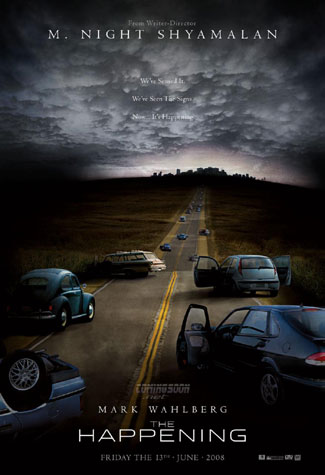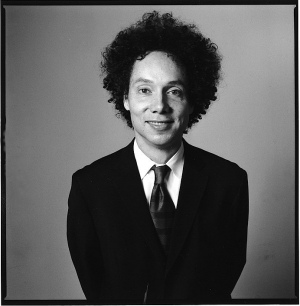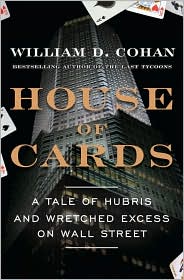
In a nutshell: Stupid on so many levels. But the extremely strange acting is oddly transfixing. This one belongs in the "so bad it's good" category. ![]()
![]()
Quick synopsis: Something in the air is causing people to die in mass numbers. Marky Mark and Zooey try to run away.
Content: How the mighty have fallen. After crafting one of the past decade's most highly regarding mystery/thrillers, The Sixth Sense, M. Night Shyamalan was riding high was riding high in the early '00's. Unbreakable found a cult audience and Signs turned into a blockbuster. Since then, he has gone decidedly downhill.
I liked The Village more than most, and maybe that was because I wanted so badly to like it after loving Signs, But I know it's not exactly Hitchcock, as badly as Shyamalan wants it to be. Then came the Lady in the Water. I refused to see that one. Read a synopsis and you will understand why. And finally, his latest, The Happening hit theaters to astoundingly bad reviews in summer '08. "How bad can it be?" I wondered. Shyamalan clearly knows how to make a movie, so what could he have done that went so horribly wrong? I doubted the critics, citing the fact that they criminally underrated The Village, and dove headfirst into Shyamalan's first 'R' rated effort. Turns out I was not disappointed, but not even remotely for the reasons I expected.
The Happening is one of the strangest mixes of competency derailed by incompetency I have ever encountered. Some movies are just plain bad in nearly all aspects. But these are not the spectacular failures, they are simply forgotten. The most spectacular failures are those with ambition involved. Those where a good director isolates himself with a work for so long that he loses his ability to objectively view it. He simply sees right through the flaws because they have started looking normal to him. Then, these flaws stick out like a sore thumb in front of an audience because they seem so out of place in an otherwise interesting high-concept movie. From time to time I find myself writing about certain movies that "in the hands of another director, this could have been an utter disaster". Movies like In Bruges and Children of Men are great examples. It would have been extremely easy to completely screw up either of these high concept scripts. Well....I think The Happening is what happens when one of these scripts ends up in the wrong hands.
Although the premise sounds silly, I can honestly imagine a scenario in which another director, with great care, pulls off a movie in which the plant life turns against humankind. But alas, M. Night efforts are derailed from the very start by the one and only Mark Wahlberg. I am hesitant to call his performance bad because it's almost so bad that I think he might have done it on purpose. No reasonable actor would act the way he does. It feels like he is doing a parody of Andy Samberg doing a parody of Mark Wahlberg, but sadly, I know this is not the case. You really have to see it to understand.
The Happening is fairly gory. And I cannot go without mentioning the film's most overt gory moment because it actually caused me to laugh aloud. Taking a step back, the basis of the story is that there is a toxin in the air that reverses humans' survival instinct, changing that signal that governs much of our behavior from "survive, survive, survive" to "die, die, die". So when people get hit with the toxin, they look for the most convenient method of killing themselves. So, if you were an on-duty zookeeper, how would you off yourself? Taunt lions! Of course! So this guy, conveniently recorded on someone's iPhone wanders into the lion den and starts to piss off one of the lions. The camera is obstructed for a moment, and when it returns to the action, there is am arm missing. But he is not satisfied. He extends his other arm towards a lion, who gets a hold of it and gives it a yank. Now, I don't mean to downplay the strength of a lion. I'm sure having an arm pulled on by one does not feel good. But if that were to occur, what would happen? Most likely, the owner of said arm would be pulled towards the lion or pulled to the ground and perhaps the arms is broken in the lion is feeling violent enough. At this point panic ensues and the arm, if not life, is likely lost as the lion has its way. But not in The Happening...oh no, in The Happening, when the arm is yanked, it pops right off as the rest of the guy remains still and looking unfazed. Let me say that again...The arm falls right off! As it if it isn't attached by tendons and nerves and muscles and bone. As if it were a chicken wing being pulled off a slow roasted chicken. Awesome!
Now we reach the fundamental problem with the concept. Horror movies are easy to make when the enemy our heroes are running from is a monster, or a man, or a mutant Anaconda, or an alien. But what about when the enemy is air? Do you have people run from the wind?! Apparently the answer is a resounding "yes!", M. Night does. As if there isn't enough unintentional comedy in that, the film's violent acts are constantly being foreshadowed by gusts of wind and shots of not-particularly-ominous looking trees. It's laughable.
There are many other problems with The Happening. But there are some good things too. M. Night has proved himself to be a master of atmosphere (which is why I loved Signs) and there are some very creepy scenes. My favorite involved a police officer hit by the toxin who shoots himself. The camera lingers on the ground, showing the dead cop and his gun lying nearby. Then we see feet walking to the gun, someone else picking it up and following suit. Then a third person. Super creepy and well shot.
But not everyone has it as easy as the cop. In fact some people go to significant lengths to off themselves. One person starts up a large lawnmower before lying down in front of it. What an evil toxin!
M. Night devotees might be disappointed to hear that there's no twist ending to The Happening. In fact, the ending is somewhat anticlimactic. After all, I'm not sure how to stage a climactic showdown against the wind. The epilogue is pointless and the final shot, which is supposed to be ominous had me giggling again. I'm guessing that the whole thing is some sort of statement about the dangers of destroying our environment, a sentiment that I very much agree with, but The Happening can't be taken seriously enough to get many people thinking.
I read that M. Night warned people that The Happening is supposed to be a "B-movie", explaining away the ridiculous premise. This indicates that M. Night did not take himself very seriously while making it. But you wouldn't know it by watching, because frankly, it's not that far removed from his other movies, which are not supposed to be taken as "B-movies". So how are the viewers supposed to know the difference between The Village and The Happening, one of which you are supposed to laugh at, and the other you aren't. Who knows? But I definitely felt like I was laughing AT The Happening, not with it.
As bad as it is, I recommend watching at least some of The Happening because it's very difficult to explain how bizarre it is. Watching is an enjoyable experience, but for all the wrong reasons.




